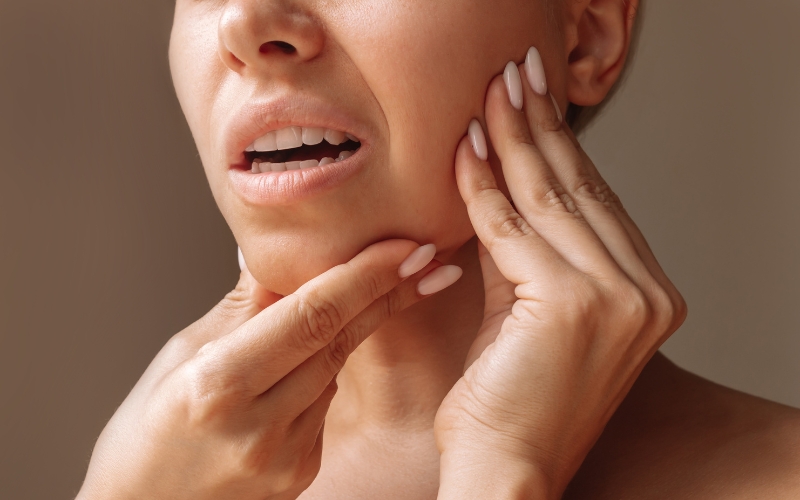New Patients Welcome!

Navigating dental emergencies demands swift action and a calm approach. Imagine sudden tooth pain or an unexpected dental injury disrupting your day. What do you do? This blog introduces the critical importance of responding promptly to such situations. Understanding the urgency and knowing how to react effectively can be the linchpin in preserving your dental health. We’ll delve into actionable steps, essential tips, and preventive measures to equip you with the knowledge needed to tackle these unforeseen circumstances confidently. Stay tuned as we unravel the significance of quick action in managing dental emergencies and safeguarding your precious smile.
Identifying Dental Emergencies
1. Severe Tooth Pain: Persistent and intense toothaches often indicate an underlying matter that requires immediate attention.
2. Knocked-Out Tooth: Tooth that has been entirely dislodged from its socket as a result of trauma or injury requires urgent dental care to increase the chances of saving it.
3. Cracked or Fractured Teeth: Sudden fractures or chips in teeth, particularly if accompanied by pain or sensitivity, may signify a dental emergency.
4. Loose or Dislodged Fillings or Crowns: When dental fillings or crowns become loose or dislodged, it exposes the affected tooth to potential damage or infection, necessitating prompt attention.
5. Swelling or Abscess: Inflammation or swelling around the gums, accompanied by pus or a bump, may indicate an abscessed tooth, requiring immediate dental intervention to prevent further complications.
6. Bleeding Gums: Unusual bleeding from the gums, especially if persistent and excessive, might indicate an emergency related to gum disease or other underlying issues.
Significance of Quick Action
1. Pain Alleviation: Swift action helps alleviate severe pain associated with dental emergencies, offering immediate relief and improving comfort levels for the individual in distress.
2. Prevention of Further Damage: Immediate response can prevent further damage to teeth, gums, or oral tissues, minimizing the risk of complications and preserving oral structures.
3. Improved Treatment Outcomes: Timely intervention increases the chances of successful treatment by enabling dentists to address issues promptly, potentially saving teeth and reducing the need for extensive procedures.
4. Reduced Risk of Infection: Quick action aids in minimizing the risk of infection or the spread of oral bacteria, which could lead to more severe complications if left untreated.
Immediate Dental Care
1. Timely Professional Evaluation: Seeking immediate dental care allows for a prompt and accurate assessment by a professional. Dentists skilled in handling emergencies can diagnose the issue swiftly, enabling timely treatment.
2. Pain Management: Dental emergencies often involve intense pain or discomfort. Seeking immediate care provides access to pain relief measures and treatments, alleviating distress.
3. Prevention of Complications: Prompt attention can prevent minor issues from escalating into more severe complications, reducing the risk of further damage to teeth, gums, or surrounding tissues.
4. Preservation of Teeth: Immediate dental care increases the chances of saving a knocked-out or damaged tooth. Rapid intervention enhances the likelihood of successful re-implantation or restoration.
Preparedness and Prevention
1. Emergency Kit Readiness: Maintaining a well-equipped dental emergency kit at home, stocked with essentials such as gauze, saline solution, and a small container for preserving a knocked-out tooth, ensures readiness for unforeseen situations.
2. Contact Information Accessibility: Having immediate access to your dentist’s contact details or information about local emergency dental services enables quick and efficient communication during urgent situations.
3. Regular Dental Check-ups: Routine dental check-ups and preventive care can identify potential issues early, reducing the likelihood of dental emergencies and promoting overall oral health.
4. Educational Resources: Accessing educational materials or attending workshops on dental first aid equips individuals with the knowledge needed to respond effectively in emergencies.
In conclusion, the essence of swift action in managing dental emergencies cannot be overstated. Your preparedness and ability to recognize these critical situations play a pivotal role in safeguarding your oral health. Remember, immediate response, whether it’s gently rinsing the mouth, applying a cold compress, or seeking professional help, can be the linchpin in mitigating pain and preventing further complications. Stay informed, keep a dental emergency kit handy, and prioritize quick action. By doing so, you not only protect your radiant smile but also ensure a healthier, happier you. Act swiftly, stay prepared, and be empowered in handling dental emergencies for a brighter dental future.




